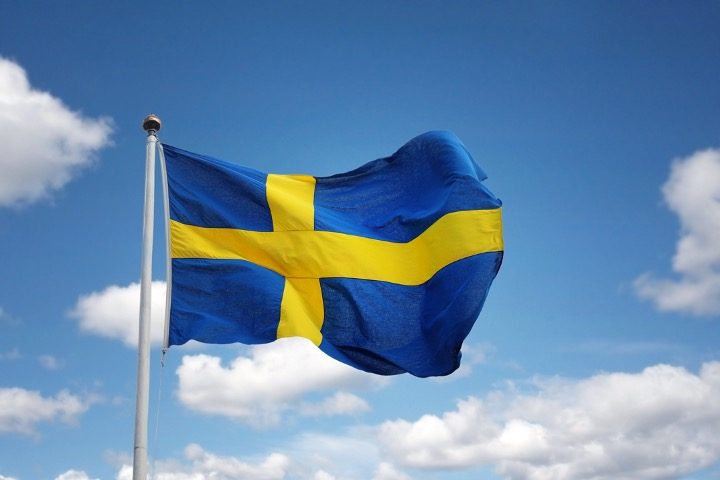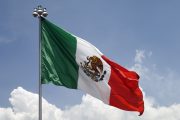
On January 7, top Swedish officials urged the country’s citizens to gear up for a potential war amid worsening ties with Moscow. At the Folk och Försvar National Conference in Sälen, Foreign Minister Tobias Lennart Billström lauded his country’s expected membership in NATO as “the biggest change in Swedish security policy in more than 200 years.”
Billström warned that “Russia will constitute a serious threat to the security of Sweden and Europe for the foreseeable future,” and added that Stockholm “must be realistic and assume — and be prepared for — a drawn-out confrontation.”
Echoing the sentiment, Defense Minister Pål Jonson said that “war can also come to us,” alleging that Ukraine is functioning as “Europe’s shield” in its conflict with Russia.
Last year, Sweden abandoned its stance of nonalignment in favor of joining NATO, quoting Russia’s military operation in Ukraine, which was launched in February 2022. Neighboring Finland followed suit, joining NATO in April 2023.
Prime Minister Ulf Kristersson declared recently that 800 Swedish soldiers will be deployed in Latvia to reinforce the 2,000 Canada-led troops based there as part of the military bloc’s Enhanced Forward Presence in the Baltic States.
Regarding his country’s future role in NATO, Kristersson said at the same conference last year that “having nuclear weapons on our own territory in peacetime is in the cards.”
Moscow has constantly highlighted that NATO’s continuing expansion toward Russia’s western borders and the bloc’s refusal to exclude Ukrainian membership in the future are among the key causes of its current military operation in Ukraine. Russia views NATO as a threat to national security.
Russian Chief of the General Staff Valery Gerasimov slammed the West for turning Europe into an “arena for confrontation.” The accession of Finland and Sweden will “have a negative impact on the situation in Europe,” he cautioned.
Moscow has also stated that the deliveries of arms and money to Kyiv make NATO countries de facto participants in the conflict.
Late last month, Sweden lifted an embargo on the export of defensive military gear to Turkey following a Turkish parliamentary committee’s authorization of Stockholm’s NATO membership bid, Turkish media reported.
The foreign affairs committee of Turkey’s Grand National Assembly approved Stockholm’s bid to join NATO following delays that had obstructed the expansion of the 31-member bloc, mainly from Turkey and Hungary.
The committee’s approval is poised to lead to Sweden’s NATO accession being debated and ratified by Ankara’s parliament. No date has yet been set for a vote by the legislature. If passed, it would require formal approval by President Recep Tayyip Erdoğan.
Stockholm has moved to lift its defense export embargo on Ankara and begun to issue export licenses at the behest of Turkish firms, news outlet Yeni Şafak reported, citing remarks from Deputy Foreign Minister Burak Akçapar.
“After the start of the process [to approve Sweden’s membership in NATO], the applications submitted by Turkish companies were positively completed,” Akçapar said, as cited by the newspaper.
Sweden implemented the embargo in October 2019 to oppose a Turkish military operation against Kurdish militia in Syria. Previously, President Erdoğan had threatened to veto Sweden’s entry to NATO, as well as that of Finland.
Meanwhile, NATO Secretary-General Jens Stoltenberg praised Turkey’s plans to ratify Stockholm’s NATO application, urging Hungary to also rubber-stamp the move “as soon as possible.”
“Sweden’s membership will make NATO stronger,” Stoltenberg contended.
The loosening of the embargo could lead to more defense trade between Turkey and Sweden, as well as possible strategic collaboration.
Turkey, a NATO member since 1953, had requested that Sweden and Finland alter their stances on Kurdish militant groups that Ankara deems to be terrorist organizations, and for Sweden to loosen its embargo on sales of defensive weaponry.
In November, Sweden’s Billström told journalists at the alliance headquarters in Brussels before a meeting with his Turkish counterpart, Hakan Fidan, that Turkey’s ratification of Sweden’s accession to NATO hinges on the United States and its willingness to provide fighter jets to the country.
Ankara has been hoping to ramp up its fleet of F-16 jets with new aircraft and upgrade kits for existing planes. Washington in 2019 expelled Turkey from its F-35 program for purchasing Russian S-400 long-range air defense systems. U.S. officials claimed that supplying the jets to Ankara would make the U.S. vulnerable to potential Russian snooping.
Sweden’s membership in NATO has become “hostage” to Washington’s policies and maneuvers between the two rival members of the bloc, Billström said, as cited by Swedish news outlet Dagens Nyheter.
“We have fulfilled our commitments and we expect the Turkish parliament to complete the ratification process, just as we agreed in Vilnius,” the minister said, alluding to the NATO summit Lithuania hosted last July. During the gathering, Erdoğan backed Sweden’s candidacy.
The agreement was reportedly facilitated by U.S. President Joe Biden’s promise to overcome resistance to F-16 sales in Congress, which he plans to do by bundling F-35 deliveries for Greece with the deal.
“I’m trying to, quite frankly, put together a little bit of a consortium here where we’re strengthening NATO in terms of the military capacity of both Greece as well as Turkey, and allow Sweden to come in,” Biden told CNN at the time.
Senator Robert Menendez (D-N.J.), a vehement opponent of selling advanced weapons to Ankara, stepped down from his position as chair of the Senate Foreign Affairs committee in September after being charged with corruption.
In late October, Erdoğan submitted the treaty on Sweden’s accession to the Turkish parliament. However, Reuters reported that Ankara had informed NATO members that it would not be able to officially ratify Sweden’s bid in time for a meeting of foreign ministers in Brussels in November. A formal accession ceremony was allegedly anticipated at the event.


